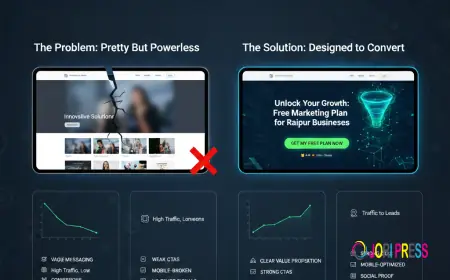India Preschool/Child Care Market: Key Drivers & Trends
The preschool/child care market in India is rapidly growing, driven by increasing awareness of early childhood education's importance. Demand is rising for quality facilities offering structured learning, safety, and holistic development for young children

Introduction
The India Preschool/Child Care Market is witnessing a transformational journey, underpinned by rising parental awareness, increasing dual-income households, and a mounting emphasis on holistic early childhood development. According to TechSci Research, the market was valued at USD 4.78 Billion in 2025 and is projected to reach USD 8.56 Billion by 2031, growing at a CAGR of 10.2% during the forecast period.
This growth trajectory is being driven by socio-economic shifts, regulatory support, evolving educational philosophies, and the rising influence of organized players entering the preschool domain. The sector encompasses a wide array of facilities, including preschools, daycare centers, early childhood learning programs, and informal childcare arrangements catering to children aged 0–6 years. As families increasingly prioritize structured learning environments from an early age, the demand for quality preschool education is surging across urban and semi-urban India.
Industry Key Highlights
-
Market Size: Expected to reach USD 8.56 Billion by 2031 from USD 4.78 Billion in 2025.
-
CAGR: 10.2% between 2025 and 2031.
-
Key Growth Drivers: Urbanization, nuclear family structures, rising disposable incomes, and parental awareness.
-
Fastest-Growing Region: South India, led by Tamil Nadu, Karnataka, and Andhra Pradesh.
-
Location Trend: Preschools within school premises are gaining preference for continuity and convenience.
-
Age Group Focus: Rapid expansion in services catering to the 2–4 years age bracket.
-
Prominent Brands: Kidzee, Bachpan, Shemrock, Tree House, and Podar Jumbo Kids.
-
Curriculum Evolution: Shift towards play-based and experiential learning aligned with NEP 2020.
-
Growth Opportunity: Premium preschool brands, franchise expansion, and tech-enabled child care platforms.
-
Market Structure: A blend of organized networks and informal/unorganized setups.
Download Free Sample Report - https://www.techsciresearch.com/sample-report.aspx?cid=1516
Key Market Drivers
1. Urbanization and Changing Family Structures
The shift from joint families to nuclear families, especially in urban areas, has led to a spike in demand for reliable child care solutions. As more parents work full-time, there’s a growing need for institutions that provide not just care but meaningful early education in a safe environment.
2. Rising Disposable Incomes and Educational Aspirations
Middle-class families with increasing purchasing power are now more willing to invest in high-quality preschool education. This has led to greater interest in branded preschool chains offering international curricula, trained faculty, and modern infrastructure.
3. Evolving Educational Perspectives
The New Education Policy (NEP) 2020 in India emphasizes early childhood care and education (ECCE) as a foundation for lifelong learning. It encourages play-based, activity-oriented teaching that is developmentally appropriate for children aged 3–8 years. This policy alignment is pushing preschools to adopt global best practices.
4. Working Parents and Dual-Income Households
With the rise in women’s participation in the workforce, demand for preschools offering full-day and after-school programs has grown considerably. Many centers now cater to extended hours, holiday care, and weekend classes to support working parents.
5. Growth in Organized Preschool Franchises
Franchise-led growth is reshaping the market. Chains like Kidzee, Bachpan, and Little Millennium are expanding their footprint through franchise models that ensure standardized curriculum and consistent delivery. These brands often leverage strong brand equity and pedagogical support to dominate local markets.
Emerging Trends
1. Preschools within School Premises
The fastest-growing segment in the market is preschools integrated within K-12 schools. Parents increasingly prefer schools that offer a continuum of education from pre-nursery to high school, minimizing transitions. Schools like DPS, Vibgyor, and Oakridge are expanding their early childhood programs, leveraging trust in their academic track record.
2. Rise of Digital and Hybrid Learning Models
The pandemic-led digital shift has resulted in several preschools adopting hybrid teaching methods. Digital platforms now support learning at home, with pre-recorded sessions, activity kits, and parent-led modules. Tech-savvy parents and digitally enabled curriculums are helping bridge learning gaps during transitions.
3. Emphasis on Holistic Development
Contemporary preschool curricula increasingly focus on emotional intelligence, communication, social interaction, and creativity. Programs integrating Montessori, Waldorf, Reggio Emilia, and multiple intelligence theories are gaining popularity. Play-based and inquiry-led learning models are at the forefront.
4. Regional Expansion Beyond Metros
While metros continue to dominate in terms of revenue, Tier II and Tier III cities are witnessing exponential demand growth. Affordable preschool chains are penetrating these regions, offering low-cost franchise models that cater to local populations.
5. Customized Child Care Services
Parents are seeking highly personalized services—flexible timings, meal planning, extracurricular activities, and even child psychology assessments. Preschools are now tailoring their offerings to meet the diverse needs of modern families.
Competitive Analysis
India’s preschool/child care market features a mix of organized chains, regional brands, and local setups. Organized players are increasingly gaining market share due to standardization, better training, and curriculum innovation.
Top Players Include:
-
Zee Learn Limited (Kidzee) – India’s largest preschool chain, known for its widespread franchise network and standardized curriculum based on the Interactive iLLUME method.
-
S.K. Educations Pvt. Ltd. (Bachpan) – Focuses on affordable quality education and has strong penetration in Tier II and III cities.
-
Lighthouse Learning Private Limited (formerly EuroKids International) – Offers a robust ecosystem of early education with an emphasis on experiential learning.
-
Shemrock and Shemford – Offers structured academic programs aligned with NEP, focused on value-based learning.
-
Tree House Education & Accessories Ltd. – Known for integrating daycare services with preschools and leveraging multimedia learning tools.
-
Apple Kids Education Pvt. Ltd. – Targets the South India market with curriculum-based play schools.
-
Hello Kids – Focuses on affordable preschool education in semi-urban and rural areas.
-
Little Millennium – Backed by Educomp, it promotes activity-based learning and sensory development.
-
Podar Education Network – Combines traditional Indian values with international pedagogies.
-
T.I.M.E. Kids – A preschool venture by the coaching institute T.I.M.E., with a growing pan-India footprint.
These players are expected to continue expanding their presence through franchising, strategic alliances, curriculum enhancements, and technology integration.
Future Outlook
The India Preschool/Child Care Market holds immense growth potential over the coming decade. Continued emphasis on early learning as a cornerstone of education policy, increasing affordability of private education, and heightened awareness among millennial parents will be critical growth enablers.
Moreover, we expect:
-
Enhanced regulatory frameworks to ensure quality and safety standards.
-
A rise in investment from private equity and venture capital firms targeting the education sector.
-
Expansion into underserved rural and peri-urban markets.
-
Integration of artificial intelligence, data analytics, and app-based learning platforms into preschool operations.
As digital infrastructure improves and social norms evolve, the preschool market is set to become more inclusive, innovative, and investor-friendly.
10 Benefits of the Research Report
-
Market Forecasting: Provides comprehensive projections of market size and segment-wise growth through 2031.
-
Detailed Segmentation: Covers facility type, age group, location, and regional distribution with actionable insights.
-
Regional Opportunity Mapping: Identifies high-growth areas like South India and emerging Tier II/III markets.
-
Competitive Landscape Analysis: Offers a clear picture of key players and their strategic positioning.
-
Trend Identification: Highlights evolving educational trends and changing parental preferences.
-
Policy Impact Evaluation: Assesses the role of NEP 2020 and government reforms in shaping market direction.
-
Consumer Behavior Insights: Explores how working parents, urbanization, and lifestyle changes are influencing demand.
-
Strategic Investment Guidance: Assists businesses, investors, and policymakers in making informed decisions.
-
Customization Option: Offers 10% free customization to address specific market or business needs.
-
Decision-making Support: Serves as a tool for strategic planning, market entry, and expansion strategies.
Conclusion
India’s preschool and child care market is evolving rapidly, transitioning from unstructured and informal setups to an organized, quality-driven ecosystem. With a growing appetite for holistic early childhood education, driven by informed and aspirational parents, the market is poised for sustained expansion.
Organized players, armed with innovative teaching methodologies, child-centric curricula, and robust franchise models, are expected to dominate. However, opportunities abound across the value chain—from educational technology to teacher training, curriculum development, and infrastructure investments.
As India positions early education as a strategic priority for national development, the preschool/child care sector is well on its way to becoming a cornerstone of the country’s education and employment ecosystem.
Contact Us
TechSci Research LLC
420 Lexington Avenue, Suite 300,
New York, United States – 10170
M: +13322586602
Website: www.techsciresearch.com
What's Your Reaction?
 Like
0
Like
0
 Dislike
0
Dislike
0
 Love
0
Love
0
 Funny
0
Funny
0
 Angry
0
Angry
0
 Sad
0
Sad
0
 Wow
0
Wow
0


















































